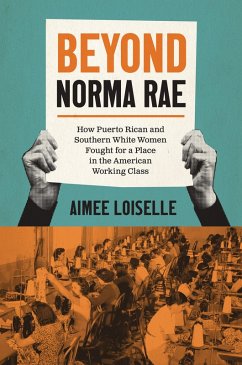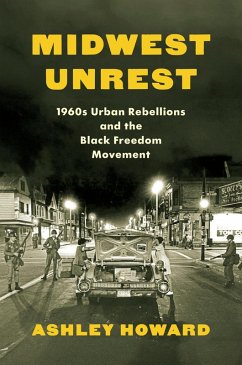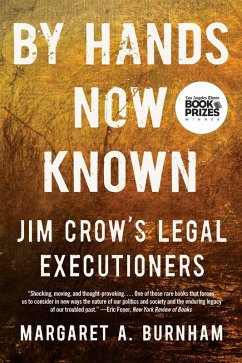
Essential Soldiers (eBook, ePUB)
Women Activists and Black Power Movement Leadership
Versandkostenfrei!
Sofort per Download lieferbar
25,95 €
inkl. MwSt.
Weitere Ausgaben:

PAYBACK Punkte
13 °P sammeln!
A new perspective on women's Black Power leadership legaciesAcademics and popular commentors have expressed common sentiments about the Black Power movement of the 1960s and 1970s-that it was male dominated and overrun with autocratic leaders. Yet women's strategizing, management, and sustained work were integral to movement organizations' functioning, and female advocates of cultural nationalism often exhibited a unique service-oriented, collaborative leadership style.Essential Soldiers documents a variety of women Pan-African nationalists' experiences, considering the ways they produced a di...
A new perspective on women's Black Power leadership legacies
Academics and popular commentors have expressed common sentiments about the Black Power movement of the 1960s and 1970s-that it was male dominated and overrun with autocratic leaders. Yet women's strategizing, management, and sustained work were integral to movement organizations' functioning, and female advocates of cultural nationalism often exhibited a unique service-oriented, collaborative leadership style.
Essential Soldiers documents a variety of women Pan-African nationalists' experiences, considering the ways they produced a distinctive kind of leadership through their devotion and service to the struggle for freedom and equality. Relying on oral histories, textual archival material, and scholarly literature, this book delves into women's organizing and resistance efforts, investigating how they challenged the one-dimensional notions of gender roles within cultural nationalist organizations. Revealing a form of Black Power leadership that has never been highlighted, Kenja McCray explores how women articulated and used their power to transform themselves and their environments. Through her examination, McCray argues that women's Pan-Africanist cultural nationalist activism embodied a work-centered, people-centered, and African-centered form of service leadership. A dynamic and fascinating narrative of African American women activists, Essential Soldiers provides a new vantage point for considering Black Power leadership legacies.
Academics and popular commentors have expressed common sentiments about the Black Power movement of the 1960s and 1970s-that it was male dominated and overrun with autocratic leaders. Yet women's strategizing, management, and sustained work were integral to movement organizations' functioning, and female advocates of cultural nationalism often exhibited a unique service-oriented, collaborative leadership style.
Essential Soldiers documents a variety of women Pan-African nationalists' experiences, considering the ways they produced a distinctive kind of leadership through their devotion and service to the struggle for freedom and equality. Relying on oral histories, textual archival material, and scholarly literature, this book delves into women's organizing and resistance efforts, investigating how they challenged the one-dimensional notions of gender roles within cultural nationalist organizations. Revealing a form of Black Power leadership that has never been highlighted, Kenja McCray explores how women articulated and used their power to transform themselves and their environments. Through her examination, McCray argues that women's Pan-Africanist cultural nationalist activism embodied a work-centered, people-centered, and African-centered form of service leadership. A dynamic and fascinating narrative of African American women activists, Essential Soldiers provides a new vantage point for considering Black Power leadership legacies.
Dieser Download kann aus rechtlichen Gründen nur mit Rechnungsadresse in A, D ausgeliefert werden.













